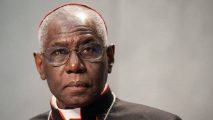Categories
Recent Posts
- US: Trump media group plans TV streaming platform
- Cameroon is broken: Who can fix it?
- Cameroonian beer and soft drinks exports soar by 73% and 46.6% in 2022
- Southern Cameroons Crisis: 2 teachers abducted in the North West
- World Bank says despite high potential, 75 vulnerable economies face ‘Historic Reversal’
Archives
- April 2024
- March 2024
- February 2024
- January 2024
- December 2023
- November 2023
- October 2023
- September 2023
- August 2023
- July 2023
- June 2023
- May 2023
- April 2023
- March 2023
- February 2023
- January 2023
- December 2022
- November 2022
- October 2022
- September 2022
- August 2022
- July 2022
- June 2022
- May 2022
- April 2022
- March 2022
- February 2022
- January 2022
- December 2021
- November 2021
- October 2021
- September 2021
- August 2021
- July 2021
- June 2021
- May 2021
- April 2021
- March 2021
- February 2021
- January 2021
- December 2020
- November 2020
- October 2020
- September 2020
- August 2020
- July 2020
- June 2020
- May 2020
- April 2020
- March 2020
- February 2020
- January 2020
- December 2019
- November 2019
- October 2019
- September 2019
- August 2019
- July 2019
- June 2019
- May 2019
- April 2019
- March 2019
- February 2019
- January 2019
- December 2018
- November 2018
- October 2018
- September 2018
- August 2018
- July 2018
- June 2018
- May 2018
- April 2018
- March 2018
- February 2018
- January 2018
- December 2017
- November 2017
- October 2017
- September 2017
- August 2017
- July 2017
- June 2017
- May 2017
- April 2017
- March 2017
- February 2017
- January 2017
- December 2016
- November 2016
- October 2016
- September 2016
- August 2016
- July 2016
- June 2016
Featured
Most Commented Posts
 4 Anglophone detainees killed in Yaounde
4 Anglophone detainees killed in Yaounde
19 comments Chantal Biya says she will return to Cameroon if General Ivo Yenwo, Martin Belinga Eboutou and Ferdinand Ngoh Ngoh are sacked
Chantal Biya says she will return to Cameroon if General Ivo Yenwo, Martin Belinga Eboutou and Ferdinand Ngoh Ngoh are sacked
13 comments Anglophone Nationalism: Barrister Eyambe says “hidden plans are at work”
Anglophone Nationalism: Barrister Eyambe says “hidden plans are at work”
12 comments The Anglophone Problem – When Facts don’t Lie
The Anglophone Problem – When Facts don’t Lie
12 comments Largest wave of arrest by BIR in Bamenda
Largest wave of arrest by BIR in Bamenda
10 comments
Latest Tweets
Error: access keys missing in Themify > Settings > Twitter SettingsFeatured
-

US: Trump media group plans TV streaming platform
-

Cameroon is broken: Who can fix it?
-

Cameroonian beer and soft drinks exports soar by 73% and 46.6% in 2022
-

Southern Cameroons Crisis: 2 teachers abducted in the North West
-

World Bank says despite high potential, 75 vulnerable economies face ‘Historic Reversal’
-

Cardinal Robert Sarah says Western prelates have lost their nerve
-

Iran launches drones at Israel in retaliatory attack
© Cameroon Concord News 2024





27, August 2020
Ivory Coast ex-leader Gbagbo’s supporters to file his election candidacy despite court decision 0
Supporters of former Ivory Coast president Laurent Gbagbo, who lives in exile in Brussels after losing a civil war in 2011, said Wednesday that they would file a candidacy in his name for October’s election. The announcement comes a day after an Ivorian court confirmed the decision to strike off the ex-leader from the electoral list due to a 20-year prison sentence.
A pro-Gbagbo coalition called Together for Democracy and Sovereignty said in a statement “it will submit president Laurent Gbagbo’s candidacy, in line with scheduled procedures”.
But a day earlier, a court in Ivory Coast confirmed the decision of the country’s electoral commission to strike off Gbagbo from the electoral list, his lawyer told AFP Tuesday. “It’s a definitive no,” Claude Mentenon told AFP, adding that there was no further legal recourse inside Ivory Coast.
Election officials had already rejected appeals by Gbagbo and former rebel leader Guillaume Soro to be allowed to compete in the October 31 presidential election, in which the incumbent Alassane Ouattara is running for re-election.
Any candidate convicted of crime automatically struck from list
President of the Independent Electoral Commission (CEI), Ibrahime Coulibaly-Kuibiert, said back in August, when the revised electoral list was revealed, that anyone convicted of a crime would be struck from the list of candidates.
Four contenders in all were barred from standing in the election on those grounds.
The world’s top cocoa grower remains scarred by a brief civil war that erupted after 2010 elections, when Gbagbo, then president, refused to cede to the victor, Ouattara. Months of ensuing violence claimed around 3,000 lives.
Gbagbo, who is currently living in Belgium, was freed conditionally by the International Criminal Court (ICC) after he was cleared in 2019 of crimes against humanity. The prosecution has appealed that ruling.
But he was sentenced in absentia to a 20-year term last November for the “looting” of the local branch of the Central Bank of the West African States (BCEAO) during the post-election crisis.
In theory at least, he could be jailed on his return, which makes any return to Ivory Coast a sensitive political issue three months before the presidential election.
The 2020 presidential elections were already set to be tense, after years of political turbulence.
Violence that followed Ouattara’s announcement that he is seeking a third term has claimed at least eight lives in August.
(FRANCE 24 with AFP)